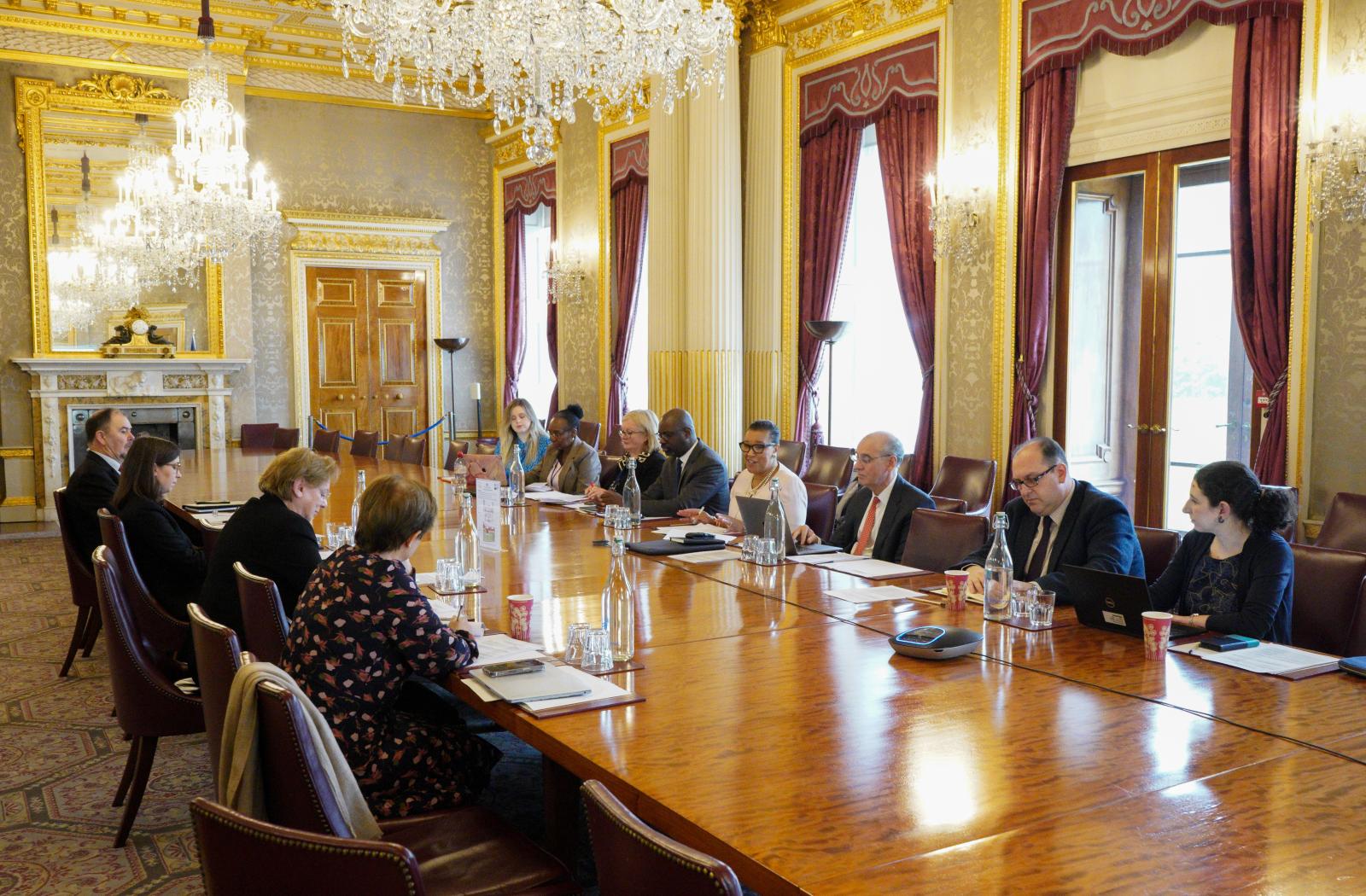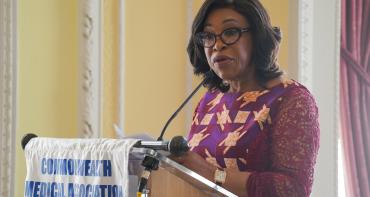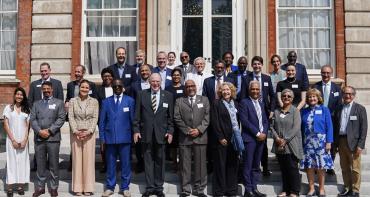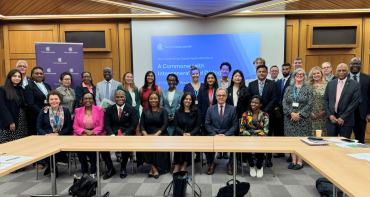The Commonwealth Secretariat is partnering with The Lancet Oncology to launch a new Commission tasked with investigating cancer care in the Commonwealth.

The Commission will bring together world-renowned health experts in cancer control, to provide a unique and comprehensive understanding of the Commonwealth’s burden of cancer and identify opportunities to improve care across the 56 member countries. By collecting evidence, the Commission aims to promote a coordinated and evidence-based strategy to tackle and reduce the burden of cancer in the Commonwealth and beyond.
On Thursday, a group of Commissioners met in-person and online at an event at the Commonwealth Secretariat’s headquarters at Marlborough House, London. It marked the group’s first meeting and saw a discussion on key priorities and research topics that the Commission should focus on.
Joining the meeting, Commonwealth Secretary-General, Rt Hon Patricia Scotland KC, said:
“This Commission is an important opportunity to take stock of the landscape of cancer research and cancer care for the 2.5 billion people in the Commonwealth.
“For us to achieve our shared objectives of reducing the burden of cancer in the Commonwealth and addressing issues of inequity in cancer care, our work must be evidence-based, coordinated and reflective of the obstacles and barriers that range from country to country.
“This Commission is a chance for us to critically assess what is working and what isn’t, helping us to get to the root of one of the Commonwealth’s biggest threats.”
Commonwealth and cancer
Cancer is a noncommunicable disease (NCD) of particular concern in the Commonwealth.
Currently, more than seven million Commonwealth citizens are living with cancer – with a new case of the disease occurring every 10 seconds.
And despite significant breakthroughs in cancer research over the last two decades, cancer rates in the Commonwealth continue to rise.
Cases have grown by 35% over the past decade, with a further 35% increase in the incidence of cancer and a 39% increase in cancer mortality predicted to occur by 2030.
Despite a rising need, no systematic analysis of cancer in the Commonwealth has been undertaken to date.
Meanwhile, care provision is being cut – particularly in low and middle-income countries - as global health systems continue to suffer from the fallout from the COVID-19 pandemic, and the financial strain caused by rising prices, global instability and reductions in international aid.
Inequities in cancer care
The Commission will look at using the data it gathers to address deep-rooted inequities that populations face in receiving cancer care within countries and between countries, as part of the Commonwealth’s collective efforts to realise Universal Health Coverage goals. Synthesising data will also help countries to evaluate their national cancer control plans based on the experiences of other countries and regions.
The first Commission meeting on Thursday included experts such as: Professor Rifat Atun, Harvard University, USA, Professor Mary Gospodarowicz, University of Toronto, Canada, Dr Bhawna Sirohi, Consultant Medical Oncologist and Director of Medical Oncology at BALCO Medical Centre, Professor Michel Coleman, London School of Hygiene & Tropical Medicine, UK, Dr Miriam Mutebi, Aga Khan University Hospital, Kenya, Professor Lorna Renner, Consultant Paediatrician at the Korle Bu Teaching Hospital, Accra, Ghana, and Mark Lodge, Co-Convenor of London Global Cancer Week.
Further experts will be invited to join the Commission as the project evolves.
The Commission furthers the Commonwealth’s commitment to combatting cancer, and in particular, preventable cancers like Cervical Cancer in particular.
This includes high-level commitments from Heads of Government at the Commonwealth Heads of Government Meeting in Rwanda last June, and their spouses who pledged their support as champions towards the elimination of cervical cancer, as well as other initiatives like the International Taskforce on Cervical Cancer Elimination which is working to advance cervical cancer elimination goals outlined in the World Health Organization (WHO) Global Cervical Cancer Elimination Strategy.
Learn more about our health work
Media contact
- Amy Coles Communications Officer, Communications Division, Commonwealth Secretariat



